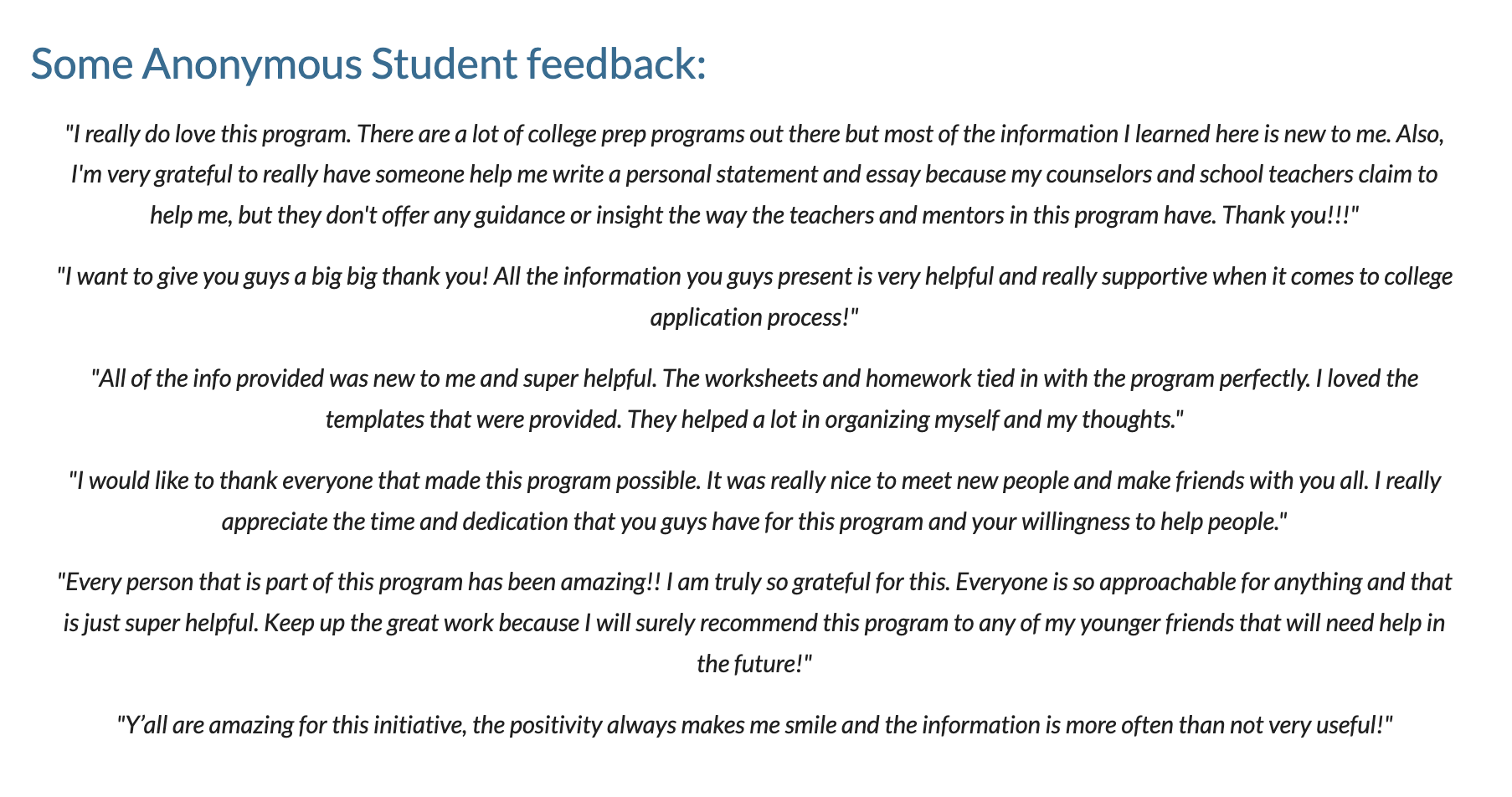Introduction
My path in undocumented student advocacy began in my senior year of high school, driven by my need to find a college willing to fully fund my education and accept me as an undocumented immigrant. This was incredibly difficult and daunting, as there were very few resources available on navigating this process, but I was very fortunate to achieve this goal and attend college. In recognizing the need to support undocumented immigrants pursuing higher education, I leveraged my personal experiences and privilege to work towards furthering innovative possibilities for undocumented immigrants by advancing educational access, notably with regards to inclusive labor/employment practices within educational institutions and beyond.
I am profoundly aware that the afflictions, systemic barriers, and manifestations of the undocumented experience are multifaceted and multivalent, often necessitating personalized and acutely resourceful support – a privilege that I wish was afforded to every single undocumented student. Undertaking the implications of such an overbearing legal burden is daunting and isolating to many, and I am deeply empathetic to the pernicious tolls that consume so much of the lived experiences of undocumented immigrants. From the frustrations and precarity that comes with being legally siloed away from participating in civil life, to the subsequent propensity to undermine one’s strengths and potentials in pursuing personal ambitions and passions, my work is fundamentally driven by the endeavor to reclaim the undocumented subject as one not defined by the juridical circumscription of illegality. One major focus of mine in this effort is to strengthen the information ecosystem and augment engagement within undocumented communities and their allied constituents. My strength pertains to undocumented student experience in higher education – specifically, applying to and succeeding within college as undocumented immigrants.
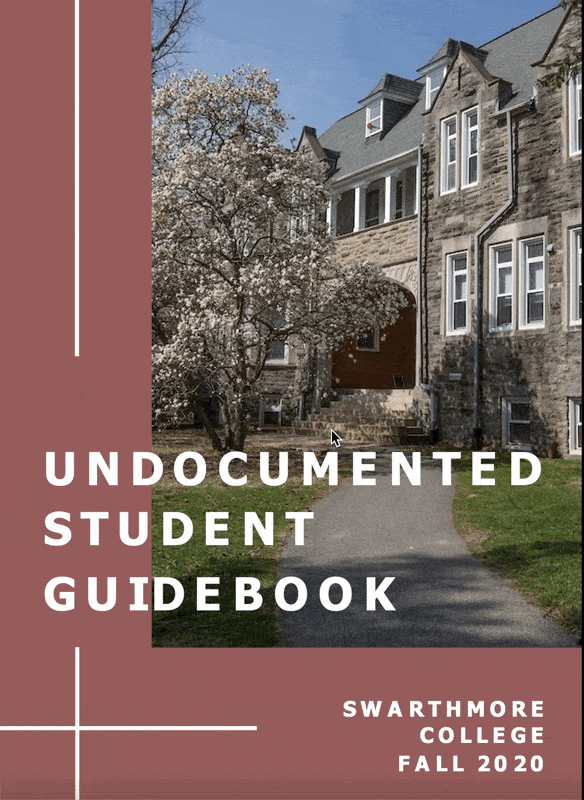

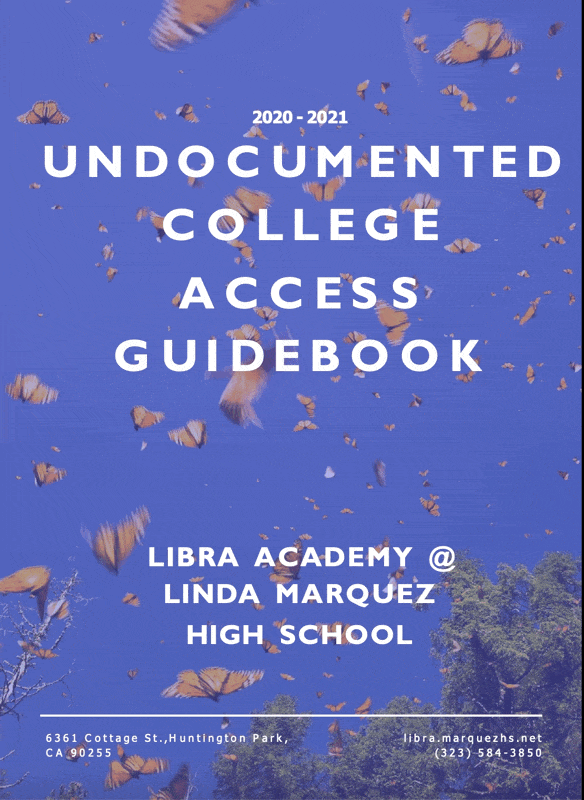
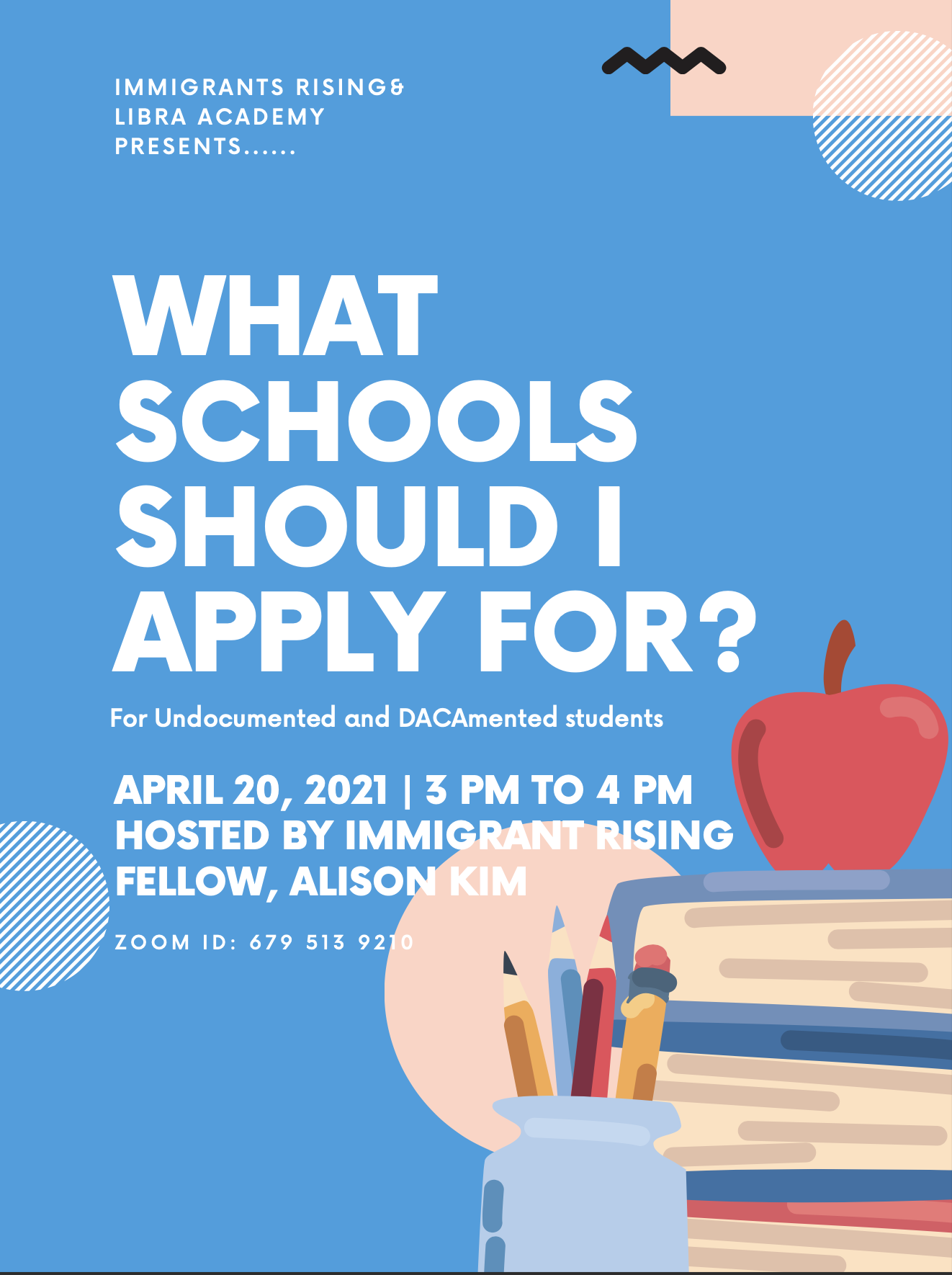
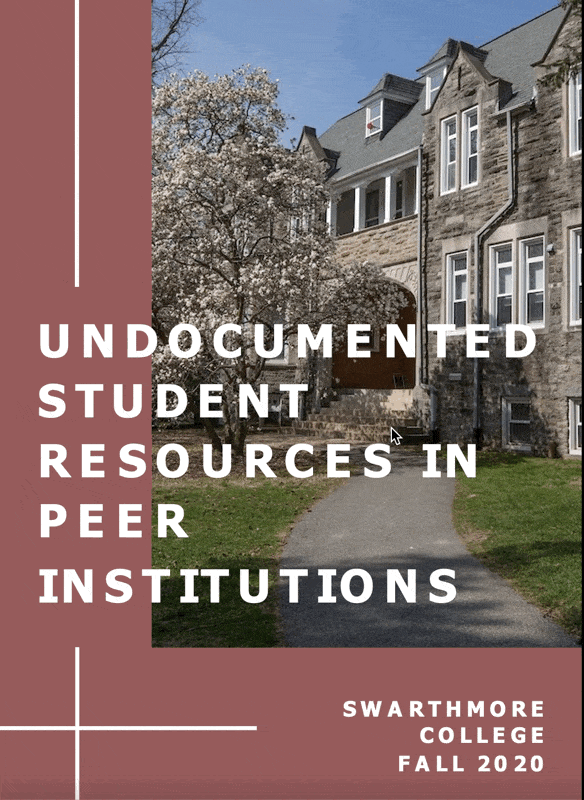
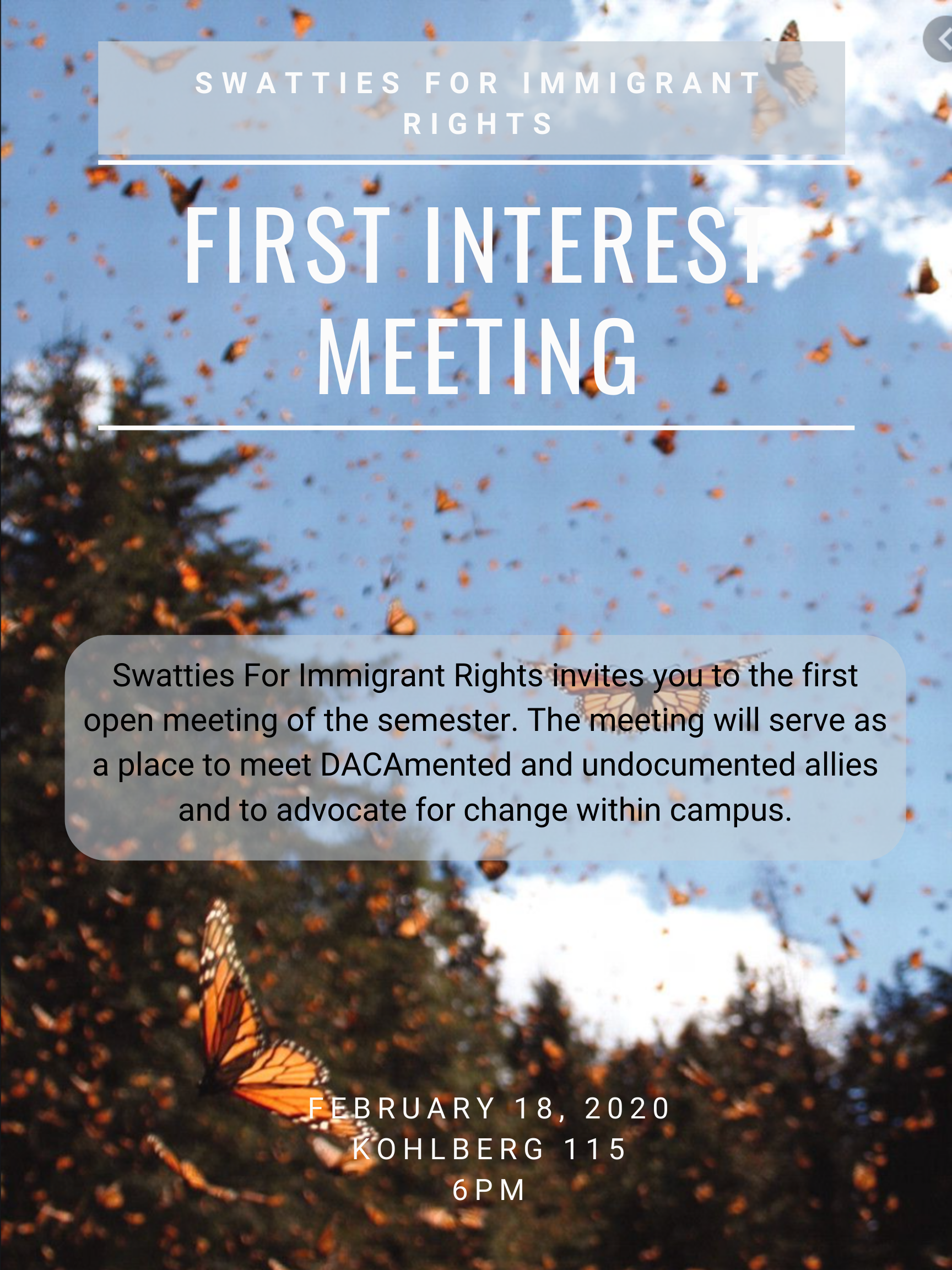
Implementing programmic career support for undocumented high school students
With regards to the former, I have led two comprehensive educational programs for undocumented students and educators on the college application process as undocumented immigrants. Firstly, in a year-long fellowship as Immigrants Rising’s High School Career Program participant, I advised and collaborated with high school college counselors on how to best support the post-graduate plans of their undocumented students, specifically focusing on how to apply to college and trade school as undocumented students. I was placed at a high school with a predominantly POC and migrant population in Huntington Park, CA. where I worked with their college counselors to provide various forms of programmatic support, resources, and advocacy for their undocumented students. This included hosting school-wide educator training sessions on the legal implications of being undocumented, ways to create an inclusive and nurturing learning environment for undocumented students, and how to assist students in navigating post-graduation career choices. I also worked directly with the students – creating and hosting support group sessions to strengthen a sense of community for undocumented students and led college and career workshops for the 12th graders, including a comprehensive workshop series covering each step in the college application process. This included a thorough breakdown of the different post-secondary education options for undocumented students factoring in federal, state, and school policies regarding admission, financial aid and institutional support for undocumented students.
Running a college access program for 30 immigrant high school students
Secondly, I, alongside two other friends Olivia Vazquez and Odalys Peralta, created and facilitated a virtual, year-long college access program for undocumented and immigrant high school seniors in south Philadelphia and several students from California and North Carolina, starting in the tumultuous summer of COVID. We led information sessions and facilitated interactive workshops every week for 8 weeks for 30+ students and individually mentored them throughout the entire process.
The curriculum was designed to comprehensively guide students through the college application process with specialized focus to meet the needs of first-generation, low income, and undocumented students. It began with an opportunity for students to define their academic and personal interests, and to assess their identities, personal values and goals through worksheets and group discussions. A significant portion of the curriculum was dedicated to understanding how to approach the Common Application, where students obtained an initial lead by creating their accounts, filling in required personal and extracurricular information, and developing their resumes. They also received thorough guidance on essay writing, including through hosting collaborative brainstorming activities in crafting both primary and supplementary essays, as well as providing one-on-one sessions for personalized guidance on their essays. The curriculum also focused on the financial aid component of the application, teaching students how to locate and fill out essential forms like the CSS Profile, IDOC, and FAFSA. For undocumented students, the curriculum also covered how to reach out to college admissions offices regarding their financial aid and admissions policies. In addition, we also introduced financial resources eligible for undocumented students including scholarships and college preparation programs like Questbridge, LEDA, and Emerge. Students also learned how to fill out AP and SAT/ACT scores, obtain transcripts, and research fly-in programs for the fall. Additionally, they received guidance on requesting application fee waivers if they lack tax forms. The program concluded with a session on organizing a structured plan on continuing their work from the summer to finish their college application in January; this included scheduling interviews, sending transcripts, test scores, and financial aid forms, and pacing essay writing to ensure all components are completed on time. Through these detailed topics, the curriculum equipped students with the knowledge and resources needed for a successful college application process.
SUBTITLE HERE
Organizations:
- Juntos – a Latine, grassroots, immigrant organization based in South Philadelphia
- Pennsylvania Immigration Citizenship Coalition – a coalition of 50+ organizations across Pennsylvania organizing to enact state and federal legislatures advancing immigrant rights
- National Korean American Service & Education Consortium (NAKASEC) – Korean American and Asian American grassroots organizing mobilizing for socioeconomic and racial justice.
- Woori Center – a sub-organization of NAKASEC based in Pennsylvania.
Guest speakers included:
- Dr. Liliana Castrellon, assistant professor in the department of Educational Foundations & Leadership at Duquesne University
- Yeny Romero and Maria Sotomayor, Pennsylvania Immigration and Citizenship Coalition
- Chris Capron, admissions dean from Swarthmore College
- Krista Cantrell, admission dean from Villanova University
Student statistical run-down:
- 83% of students identify as a person of color
- 60% of students identify as a low-income student
- 70% of students identify as an immigrant or first-generation immigrant
- 57% of students identify as a first-generation college student
- 10% of students identify as an undocumented student (with and without DACA)
Part of the program also included pairing students with individual college mentors who were also first-generation, low-income students of color from our college network. These mentors generously volunteered their time to offer individualized support to their partnered students throughout the college application process, supplementing their participation in the program. Additionally, we leveraged our community network by inviting various immigrant organizing leaders and college educators working with immigrant and undocumented students in Philadelphia as guest speakers to speak at information sessions, including constituents from organizations at Juntos, PICC, NAKASEC, Woori Center, and colleges Duquesne University, Swarthmore College, and Villanova University. In tandem, I directly organized with the Pennsylvania Immigration Citizenship Coalition where I was involved in the Tuition Equity and Inclusion Campaign working to pass SB 393/394, a crucial bill expanding in-state college tuition eligibility to PA students regardless of immigration status. There, I initiated capacity building for the campaign by crafting campaign materials and consolidating various constituents and social organizations within Philadelphia through this college access initiative.
By integrating a comprehensive and inclusive curriculum, individualized mentorship, community engagement and activism, our program embodied a grassroots approach to address the unique challenges faced by our students where institutional support was more unreliable due to the isolative and unprecedented circumstances of the pandemic. Aside from ensuring that students were well-prepared to apply to college in all aspects, the involvement of immigrant organizing leaders and college educators enriched the program with diverse perspectives and expert guidance. Our collaboration with the Pennsylvania Immigration Citizenship Coalition further amplified our impact, advocating for broader access to higher education through legislative efforts. Taken together, these elements created a robust support system that not only guided students through the technicalities of college applications but also strengthened their confidence and resilience by bringing together a community invested in their future success.
Undocumented student activism and policy change at Swarthmore College
Having a history of working with various educators dedicated to supporting undocumented students in higher education, I am also deeply knowledgeable about the legal landscape of institutional policies related to work/paid opportunities. Most saliently, I have directly worked to reform institutional policy related to paid funding for undocumented students in college, and have worked under the arduous and nuanced process of how institutional change is made with regards to legally sensitive and complex projects involving various administrative and faculty constituents.
During the first two years at my college, I felt like I was spinning through a bureaucratic black hole with a contradiction situated at its very center: if an administration intentionally establishes policy to admit undocumented students to the college, how could they not have the foresight to implement policies allowing the students to be eligible for the co curricular programs offered at the college? If admitting students is indicative of the college’s investment in their future, then why are the resources offered by the college that students could utilize for post graduation prospects inaccessible to a marginal group of students?
The irony of bureaucracy revealed that there was no person who had the answer or, even at the very least, was in charge of thinking through these questions. Thus, I had to be very proactive in trying to find the answers, consolidating the support from several trusted faculty and other undocumented students in the same predicament. Most saliently, I was supported by the school’s student organization for undocumented students and DACAmented students (i.e. undocumented students with DACA). This was the place where we would strategize how we could mobilize and advocate for our needs as a community, and for us to share different information, resources, and ideas that could help achieve our goals. During Sophomore year, I wrote a paper analyzing the institutional history of policy reform for undocumented students, and the various constituents involved in bringing each policy into fruition, where it was found that more often than not, they were catalyzed by persistent organizing of the students, the group most affected by these policies (and the lack thereof). This was also true now: it was the students whose aspirations unable to be pursued, whose futures were at stake, that were directly affected by the lack of answers, and thus had the least to lose by militantly advocating for them.
My persistent advocacy for work alternatives and funding opportunities had revived the school's inactive Sanctuary Committee, a cohort of student, faculty, and administration working to support undocumented students, and I served as its student representative, where I self-authored a 50+ page report compiling resources and institutional practices on ways to best support the undocumented student community which was directly used to create innovative institutional policies and programs for the undocumented student community. Much of the information and strategies used in enacting change within my school came from my own extensive research into the various institutional practices within higher education institutions across the U.S., focusing predominantly on California’s UC and CSU schools. I was also involved in the work of collaborating with other undocumented college educators in Pennsylvania and Massachusetts in taking the strategies and precedent on undocumented student policy within the aforementioned schools and implementing them to support undocumented students outside of California. As a significant outcome of these efforts, I became first undocumented student in my college to qualify for academic research funding and therefore set precedent to a new change in policy that qualifies undocumented students for more institutional funding opportunities, sharpening the legal language associated with every funded opportunity, where now, undocumented students are being adequately considered within student funding and employment decisions, and will continue to be centered in conversations surrounding work equity and inclusion.
As an increasing number of undocumented students enter college without DACA, the relevance of questions surrounding co curricular opportunities for students without work authorization persist. Finding ways to thrive within existing legal limitations is continuous work and one that must always be treated with urgency, as it directly affects the future and livelihoods of undocumented students who are resigned to having way less options, resources, and possibilities for the future. The slowness of bureaucracy and thus, effectuating change, proves much remains to be done after 4 years, after I have left. Nevertheless, from advocating for higher education access through legislative reform and community engagement, to each relationship I fostered with other students bonded by our shared predicaments and aspirations, these collective experiences contributed to a more equitable and supportive environment for undocumented students, ensuring that their futures are shaped by opportunity and inclusion. All of these achievements would not have happened without the collective actions undertaken by my peers and faculty, and I am indebted to them for their support. I hope to continue to dedicate my time advancing rights for undocumented immigrants, within the education sector and beyond.
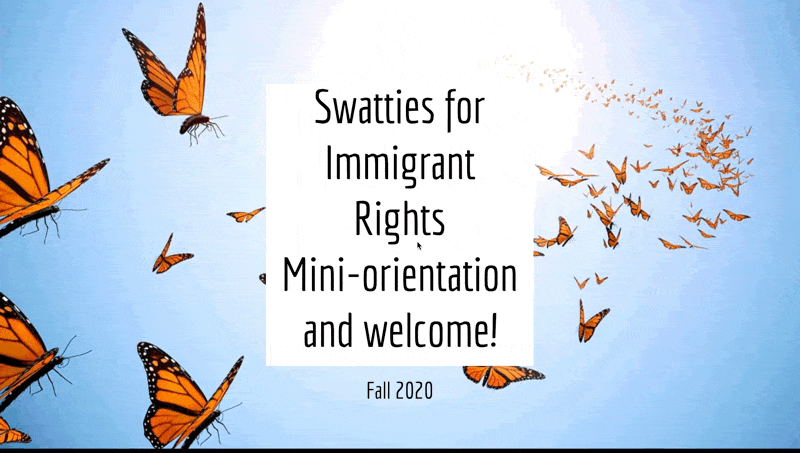
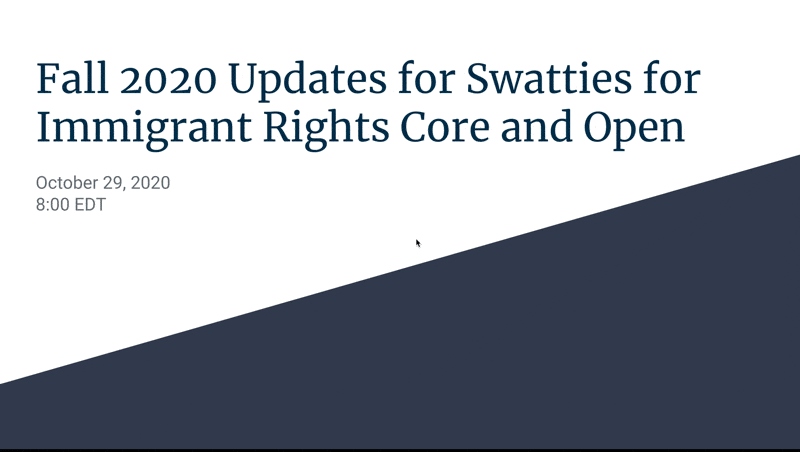
Lorem ipsum dolor sit, amet consectetur adipisicing elit. Ea dolorem unde et expedita animi eos reiciendis quae, laudantium nihil minima ratione tempora harum, amet placeat ducimus corrupti velit tempore a consectetur at ad. Nemo atque non excepturi officia aut quas iusto velit nihil laboriosam eveniet doloribus tempore dolor esse molestias, ad vero magnam fugiat, corporis veniam odit ratione nostrum ducimus. Maiores porro, ab dolorum quos totam distinctio perferendis, asperiores veniam similique modi odit mollitia tenetur assumenda optio sequi quas aliquid suscipit accusantium nisi praesentium expedita. Doloremque qui exercitationem fuga, ab at aliquid quam optio eos laborum! Maxime totam praesentium nam.
